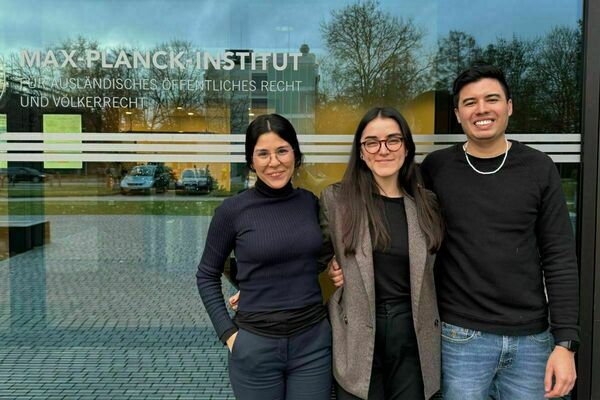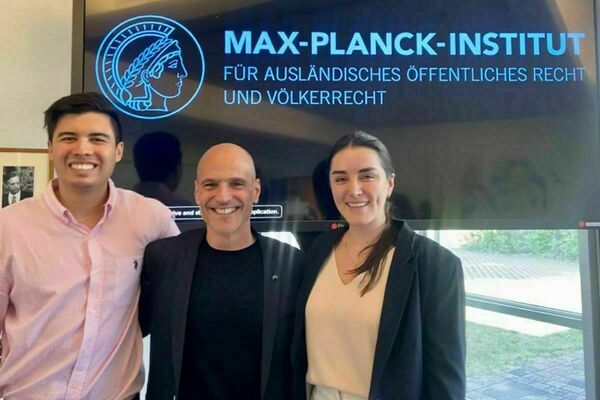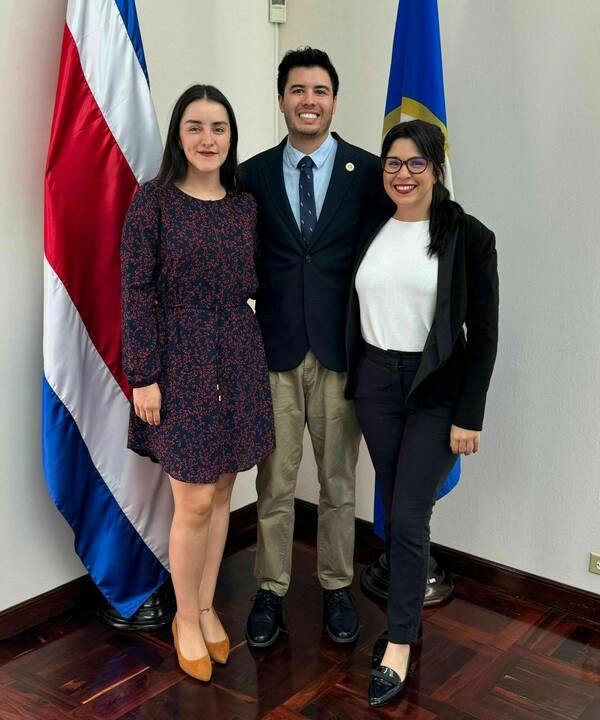
J.S.D. candidate Nicolás Buitrago-Rey recently published an article, “Specificity in the Inter-American Court of Human Rights,” with Aníbal Pérez-Liñán, director of the Kellogg Institute for International Studies, and International Human Rights LL.M. ‘22 alumnae Angélica Suárez and Paloma Núñez. Their article was published in the Journal of Human Rights Practice of Oxford University Press in August 2024.
This article develops the concept of specificity in human rights reparations and analyzes the specificity formulas deployed by the Inter-American Court of Human Rights in structural measures as a form of positive subsidiarity. The authors conclude that outcome-based specificity can help courts balance positive subsidiarity and State autonomy in the design of reparations.
Angélica, Paloma, and Nicolás presented their article in the Max Planck Institute for Comparative Public Law and International Law in Heidelberg, Germany, in December 2023. In early October, they will present it at the Inter-American Court of Human Rights.
Angélica, Paloma, and Nicolás studied together in the 2021-2022 cohort of the LL.M. in International Human Rights Law program. Angélica and Paloma are currently working in the Inter-American Court of Human Rights in San José, Costa Rica. Nicolás is also at the Inter-American Court of Human Rights as a research visitor and visiting professional. He is supporting the Court’s Supervision Unit and conducting research related to his doctoral dissertation.
Read reflections and key takeaways from Aníbal, Angélica, Paloma, and Nicolás below.

Aníbal Pérez-Liñán
Director of the Kellogg Institute for International Studies and Professor of Political Science and Global Affairs
“Three superb LL.M. students led this project. They conceptualized the legal issues at stake and adapted social science methodologies to develop our innovative study of specificity formulas. Our LL.M. students have extensive knowledge of the Inter-American Human Rights System, and I have learned a great deal working with them on this paper.”
Angélica Suárez
Law Clerk at the Inter-American Court of Human Rights and LL.M. in International Human Rights Law ‘22 Alumna
“Preparing this article has been a really interesting opportunity to put the knowledge of the Tribunal’s functioning at the service of a research project that can be useful to improve both the Tribunal’s work as well as providing qualitative analysis tools for third parties.”

Paloma Núñez
Law Clerk at the Supervision Unit of the Inter-American Court of Human Rights and LL.M. in International Human Rights Law ‘22 Alumna
“This research was born from the need to understand how the design of reparation measures may facilitate its supervision by the Inter-American Court and contribute to faster State compliance. It is crucial for the Supervision Unit of the Inter-American Court to develop strategies and methods to strengthen reparations design and supervision.”
Nicolás Buitrago-Rey
Fellow at the Inter-American Court of Human Rights, J.S.D. Candidate, and LL.M. in International Human Rights Law ‘22 Alumnus
“We had the privilege to present this article before the academic community of the Max Planck Institute for Comparative Public Law and International Law in Heidelberg, Germany, which allowed us to conduct research that would be useful to the Inter-American Court, and human rights lawyers and academics.”

